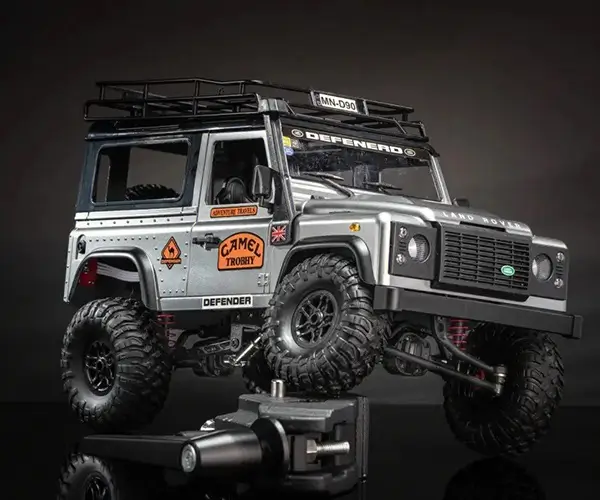part 1:
When it comes to electromechanical design, few components have as much impact on efficiency, reliability, and versatility as the DC gear motor. Especially those operating at 24 volts, which strike a perfect balance between power output and energy efficiency for a wide array of applications—from robotics and automation to small-scale manufacturing and hobbyist projects.

The charm of 24V DC gear motors
A 24V DC gear motor combines a standard voltage rating that’s both safe and powerful enough for many systems. It’s no wonder that these motors are highly sought after, thanks to their ability to deliver consistent torque at manageable electrical specifications. They are particularly popular in environments where power supply stability and performance need to coexist seamlessly.
Why choose a 24V DC gear motor?
The choice of voltage is far from arbitrary. 24V motors tend to offer a sweet spot—less voltage than industrial 48V or 72V options but more power than the typical 12V motors used in smaller gadgets. This balance translates into a robust torque output, lower current draw for the same power, and overall efficiency improvements.
From a design perspective, these motors come in various gear ratios, allowing engineers to tailor speed and torque to their specific needs. Whether you require a motor that spins slowly with high torque or one that runs swiftly with lower torque, there’s a 24V gear motor on the market to fit.
Market overview: what about price?
Now, turning to the question that often opens the door to many more: “What does a 24V DC gear motor cost?” The cost spectrum is broad, influenced by factors like brand reputation, precision of manufacturing, gear quality, and additional features like waterproofing or encoders.
Generally, basic models from generic suppliers or unbranded options can start at around $20 to $50 for small, low-power units suitable for hobby projects or light-duty tasks. These are often simple brushed motors with plastic gears, ensuring affordability but also a trade-off in durability and performance.
Mid-tier options, featuring better materials, compact engineering, and sometimes even brushless designs, usually fall into the $50 to $150 range. These are suitable for more demanding applications requiring longer life and more consistent performance.
High-end or specialized 24V gear motors—such as those used in industrial automation, robotics, or precision equipment—can range anywhere from $150 up to $500 or more. These motors often incorporate advanced materials, high-quality gear trains, integrated feedback systems, and superior build quality.
Factors affecting price
Gear ratio: Higher gear ratios increase torque but reduce speed, and these variations can influence cost depending on manufacturing complexity. Material quality: Metal gears and sealed housings tend to drive prices higher but provide durability for demanding environments. Brand reputation: Established manufacturers with proven quality standards usually cost more but offer peace of mind. Customization and features: Extended warranties, custom voltage options, integrated encoders, or waterproofing add to the price.
Why invest in quality?
While it’s tempting to opt for the lowest-priced option, especially if you’re on a tight budget, investing in a quality 24V DC gear motor pays dividends. Better materials and engineering mean longer lifespan, less downtime, and more consistent results—crucial factors in commercial or industrial settings. Cheaper models often succumb to wear and tear faster, leading to higher total operational costs over time.
The landscape of available brands
Leading manufacturers like Maxon, Bodine, and Oriental Motor have built reputations for precision, high-quality engineering, and reliable customer support. Smaller, regional brands or online marketplaces like AliExpress and Amazon offer cost-effective alternatives, though they require more research and community feedback to ensure quality.
Summary of key points
24V DC gear motors combine efficiency, power, and safety. Price ranges from $20 to over $500 based on specifications and quality. Higher gear ratios, improved materials, and brand reputation increase cost but enhance longevity. Careful selection ensures better value and performance.
The landscape is vibrant with options, so choosing the right motor involves balancing your project’s power needs, expected lifespan, and budget constraints. Next, we’ll explore specific applications, environmental considerations, and tips for sourcing the best 24V DC gear motors at the right price.
Kpower has delivered professional drive system solutions to over 500 enterprise clients globally with products covering various fields such as Smart Home Systems, Automatic Electronics, Robotics, Precision Agriculture, Drones, and Industrial Automation.




































